Difference between revisions of "Flow directions in engine cooling hoses (both early and B-series engines)"
Kloebereng (talk | contribs) |
Kloebereng (talk | contribs) |
||
| Line 5: | Line 5: | ||
[[File:M-25 cooling.jpg|400px]] | [[File:M-25 cooling.jpg|400px]] | ||
<br /> | <br /> | ||
| + | The yellow arrows below show the hose barbs where the OEM Kubota engine had a "thermostat bypass hose." This connection provided a small, constant flow through the engine block (even when the thermostat is closed while the engine coolant warms to operating temperature.) The purpose is to prevent hot spots in the engine block that could damage gaskets and seals or warp the head. Once the thermostat opens, the bypass becomes a redundant flow path. | ||
| + | Catalina (and other boat manufacturers) removes that bypass and connects the domestic water heater hoses -- thereby just creating a much longer flow path that still bypasses the thermostat and protects against hot spots. The benefit of doing this is that the domestic water heats up FAST because -- it doesn't depend on waiting until the thermostat opens. Water will heat while idling, which was about impossible when (in other earlier models) the water heater was plumbed in series with the heat exchanger. | ||
<br /> | <br /> | ||
| − | [[File:WH connection stbd side.jpg|400px]] | + | [[File:WH connection stbd side.jpg|400px]] |
| − | |||
<br /> | <br /> | ||
<br /> | <br /> | ||
Revision as of 04:08, 15 August 2019
Contents
Cooling loop schematic for earlier engines (e.g., M-25/XP/XPA)
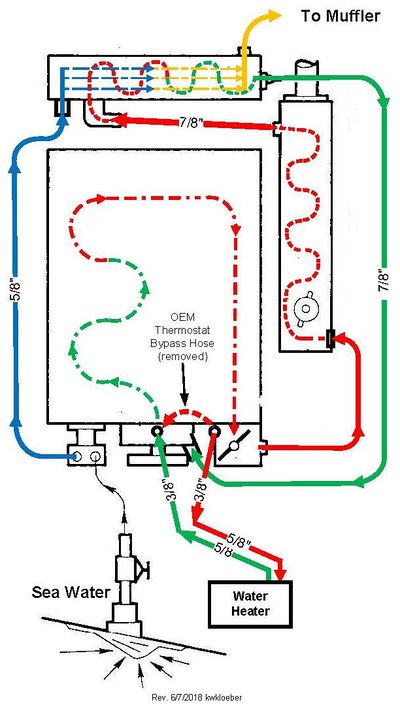
The yellow arrows below show the hose barbs where the OEM Kubota engine had a "thermostat bypass hose." This connection provided a small, constant flow through the engine block (even when the thermostat is closed while the engine coolant warms to operating temperature.) The purpose is to prevent hot spots in the engine block that could damage gaskets and seals or warp the head. Once the thermostat opens, the bypass becomes a redundant flow path.
Catalina (and other boat manufacturers) removes that bypass and connects the domestic water heater hoses -- thereby just creating a much longer flow path that still bypasses the thermostat and protects against hot spots. The benefit of doing this is that the domestic water heats up FAST because -- it doesn't depend on waiting until the thermostat opens. Water will heat while idling, which was about impossible when (in other earlier models) the water heater was plumbed in series with the heat exchanger.
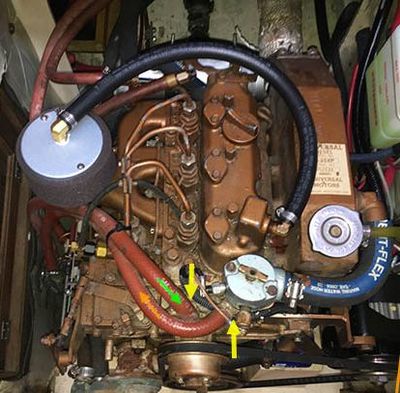
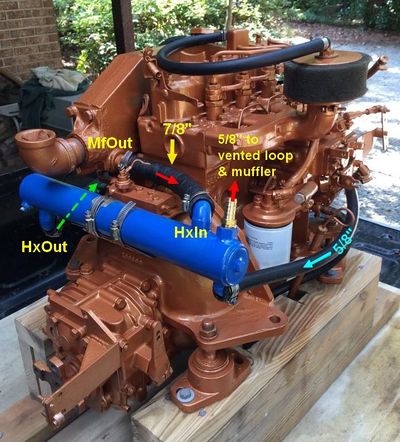
Coolant flow on the B-series engines (M-35B shown)
The basic coolant flow loops on the B-series are identical to the above schematic except that some of the hoses are run in different locations.
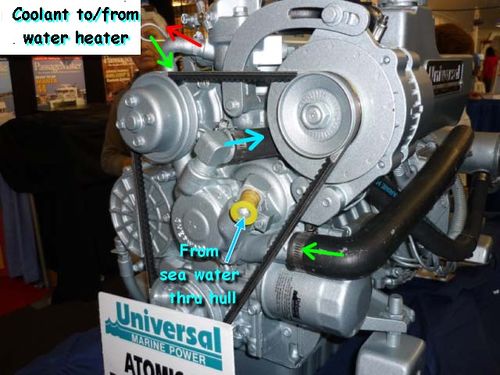 Front
Front
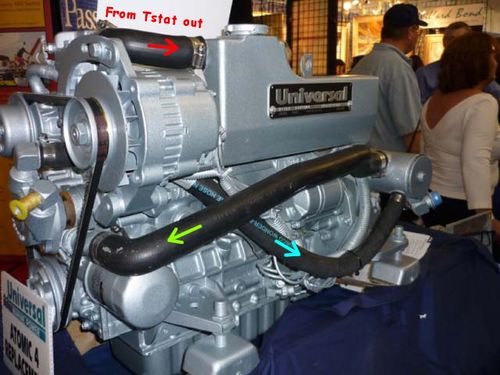 Front quarter
Front quarter
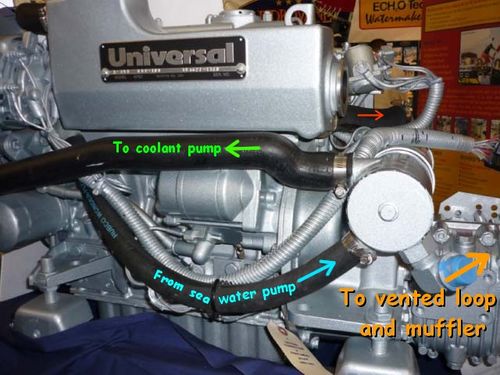 Port side
Port side
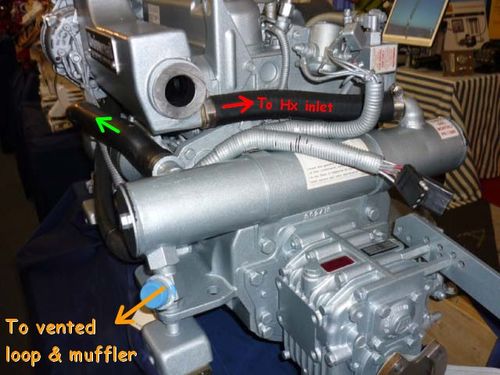 Rear quarter
Rear quarter
--KWKloeber 2 February 2019